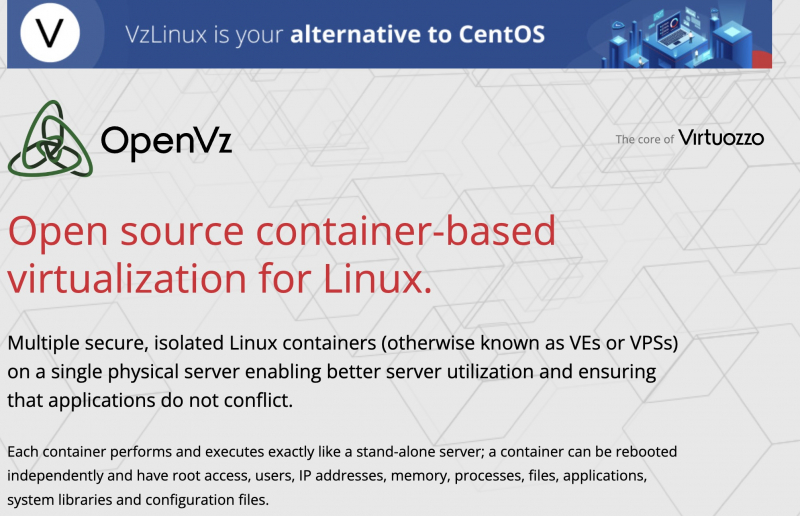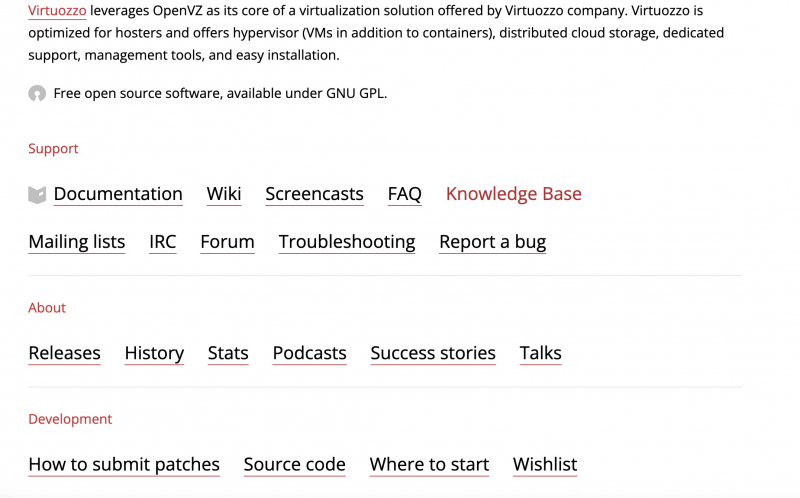OpenVZ

OpenVZ owned by Virtuozzo is a Linux-based packaging technology and has a platform similar to Docker in terms of features and functionality but with more improvements in terms of deploying applications as well as possible. OpenVZ provides simple command-line tools for managing containers, making it relatively easy to set up and maintain a containerized environment.
OpenVZ also allows you to create isolated environments, called containers on a physical server. OpenVZ is an operating system-level virtualization technology, all running applications have a kernel. The special thing about OpenVZ that I found beneficial when using it as a docker alternative is that it will create the application's working areas with memory, IP addresses, system libraries, applications, and file independence.
OpenVZ supports live migration of containers between physical hosts. This can be useful for load balancing or container migration without downtime. OpenVZ uses templates to create containers on the fly. Users can choose from a variety of pre-configured templates covering different Linux distributions and application stacks.
Using OpenVZ gave me simple command-line container management. In addition, OpenVZ also shares the server's kernel, so it can save more resources than traditional virtualization. It also has lower costs in terms of memory and CPU.
Features:
- OpenVZ provides resource monitoring tools to track container resource usage.
- Enabling better resource allocation, performance optimization.
Pros:
- Easy to set up, use, and manage
- Has a user-friendly platform
- Maximum resources and good expansion
- There are significant savings in terms of memory and CPU usage
- Has high efficiency
Cons:
- No variety of manual options to showcase your operating system
- Not fully virtualized
- Not all modules can be accessed
Founded: 2005
Headquarters: Boston, Massachusetts, United States
Website: https://openvz.org/
Twitter: https://twitter.com/_openvz_











